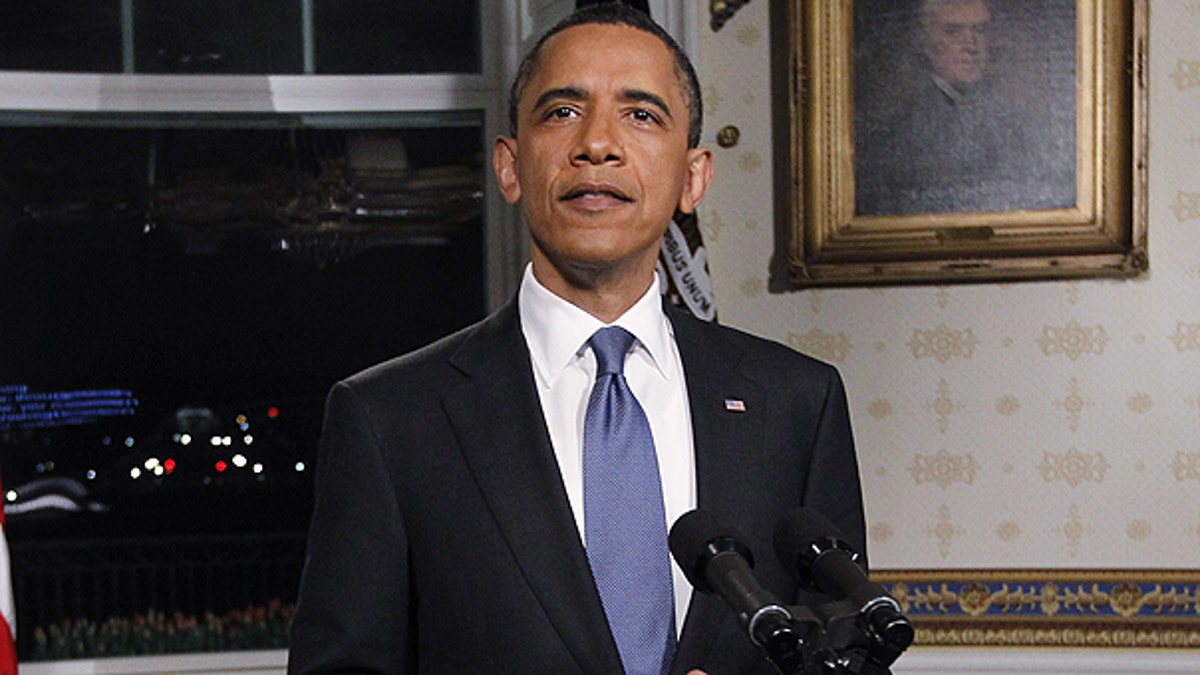
April 8: President Obama poses for photographers in the Blue Room at the White House in Washington after he spoke regarding the budget and averted government shutdown after a deal was made between Republican and Democrat lawmakers. (AP)
President Barack Obama will lay out his plan for reducing the nation's deficit Wednesday, belatedly entering a fight over the nation's long-term financial future. But in addition to suggesting cuts—the current focus of debate—the White House looks set to aim its firepower on a more divisive topic: taxes.
In a speech Wednesday, Mr. Obama will propose cuts to entitlement programs, including Medicare and Medicaid, and changes to Social Security, a discussion he has largely left to Democrats and Republicans in Congress. He also will call for tax increases for people making over $250,000 a year, a proposal contained in his 2012 budget, and changing parts of the tax code he thinks benefit the wealthy.
"Every corner of the federal government has to be looked at here," David Plouffe, a senior White House adviser, said Sunday in one of multiple television appearances. "Revenues are going to have to be part of this," he said, referring to tax increases.
Until now, Mr. Obama has been largely absent from the raging debate over the long-term deficit. The White House has done little with the recommendations of its own bipartisan deficit commission. And Mr. Obama's 2012 budget didn't offer many new ideas for tackling entitlement spending, among the biggest long-term drains on the federal budget.
The president stayed out of the long-term deficit debate in an apparent effort to see whether Republicans would move first in offering long-term deficit-reduction ideas—something House Budget Committee Chairman Paul Ryan did with an ambitious plan last week to trim spending now and in the future.
The White House move caught Democrats in Congress off guard, according to aides, and details of the president's proposals were sketchy. Mr. Plouffe said the president will name a dollar amount for deficit reduction, although the White House wouldn't provide specifics. Introducing taxes into the discussion has the potential to complicate the resolution of coming budget fights, specifically the need to raise the debt ceiling, a move needed to prevent the U.S. defaulting on its debt.
Click here to read more on this story from The Wall Street Journal.












































